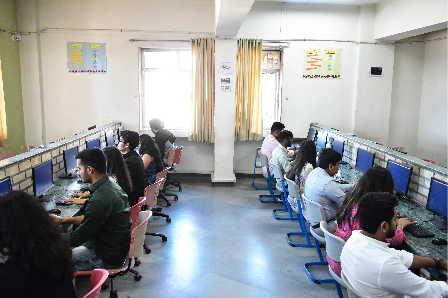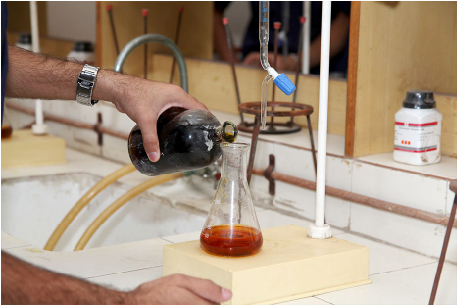Announcement
Get Ready for INDUS CUP 2K26! | Dates: 5–10 January 2026 | Stand a Chance to Win Cash Prizes up to ₹10,00,000!...Read more Get Ready for INDUS CUP 2K26! | Dates: 5–10 January 2026 | Stand a Chance to Win Cash Prizes up to ₹10,00,000!
We are excited to announce the Indus Hackathon 2025, an exhilarating one-day event organized by the CSE Department of Indus University....Read more We are excited to announce the Indus Hackathon 2025, an exhilarating one-day event organized by the CSE Department of Indus University.
26th ISTE Faculty Annual State Convention will be held at Indus University on April 27, 2023....Read more 26th ISTE Faculty Annual State Convention will be held at Indus University on April 27, 2023.
Get Ready for INDUS CUP 2K26! | Dates: 5–10 January 2026 | Stand a Chance to Win Cash Prizes up to ₹10,00,000!...Read more Get Ready for INDUS CUP 2K26! | Dates: 5–10 January 2026 | Stand a Chance to Win Cash Prizes up to ₹10,00,000!
We are excited to announce the Indus Hackathon 2025, an exhilarating one-day event organized by the CSE Department of Indus University....Read more We are excited to announce the Indus Hackathon 2025, an exhilarating one-day event organized by the CSE Department of Indus University.
26th ISTE Faculty Annual State Convention will be held at Indus University on April 27, 2023....Read more 26th ISTE Faculty Annual State Convention will be held at Indus University on April 27, 2023.
The B.Sc. Chemistry program spans four years, divided into eight semesters, offering a comprehensive study of inorganic, organic, physical and analytical chemistry along with interdisciplinary subjects. It encompasses a meticulously structured undergraduate initiative, aimed at furnishing students with theoretical understanding and practical proficiency across diverse facets of chemistry.
Upon graduation, individuals possessing a degree in chemistry are witnessing an increasing demand across various sectors. Prospective career avenues include roles as chemists, R&D scientists, analytical lab chemists, forensic lab chemists, food testing chemists, materials scientists, and geochemists, within pharmaceutical and chemical industries. Furthermore, graduates are qualified to contribute to government and private sectors or laboratories.
The curriculum entails a combination of core theory, laboratory exercises, as well as Ability Enhancement Elective (AEC) and Skill Enhancement Courses (SEC) offerings, such as chem-informatics and English, respectively. Spanning eight semesters, it encompasses Core Courses (CC), Discipline Specific Elective (DSE), and Generic Elective (GE) programs, alongside rigorous laboratory practical sessions.
The program facilitates students in conducting extensive laboratory research projects, thereby enabling them to explore chemical phenomena, properties, and reactivity in depth. It provides guidance from leading professors, ensuring students' engagement in individual research projects under their mentorship.
Students can get online admission based on merit or they can simply walk in and after the interaction, they can get approval from Admission Committee.
The criteria that the students should follow are:-
The overarching objectives of the Bachelor’s degree programme in Chemistry are outlined as follows:
Upon completion of the B.Sc. (Honours/Research) Degree in Chemistry. the graduating student is expected to demonstrate the following:
Attainment of a profound core competency in the respective discipline and related allied subject areas.
A systematic and coherent understanding of fundamental concepts in the specific disciplines, encompassing Inorganic Chemistry, Organic Chemistry, Physical Chemistry, and Analytical Chemistry.
Proficiency in employing an evidence-based comparative approach to elucidate synthesis, analysis, or principles within the chosen discipline. This may involve comparative methodologies, observations, or applications.
Understanding the basic principles of equipment and instruments utilized in laboratories. Proficiency in demonstrating experimental techniques and methods within their area of specialization.
Demonstration of comprehensive knowledge and understanding of both theoretical and experimental/applied principles across various fields such as Inorganic Chemistry, Organic Chemistry, Physical Chemistry, and Analytical Chemistry. Additionally, proficiency in the use of advanced instruments and related software for in-depth material characterization, analysis, and clinical diagnostics.
Mastery of basics and advanced training to express subject matter through technical writing and oral presentations within the context of each discipline.
Development of critical thinking ability through problem-solving and numerical exercises, utilizing fundamental knowledge and concepts specific to each discipline.
Encouragement of an inquisitive characteristic through appropriate questioning, planning, and reporting of experimental investigations tailored to the specific discipline.
Opportunities provided within the curriculum for students to act as team players by contributing in laboratory, field-based situations, and industry. Development of skills as project managers, including knowledge of project management, writing, planning, and understanding ethical standards and rules and regulations related to scientific project operations.
Attainment of a good working knowledge in understanding and conducting data analysis, utilization of library search tools, and proficiency in discipline-specific computational work or simulations.
Understanding and development of ethical awareness and reasoning, adequately covered in the course curriculum specific to each discipline.
Inculcation of a habit of continuous learning through the use of advanced ICT techniques and other available resources, including books and journals, for personal academic growth and enhanced employability opportunities in Chemistry.
The Department of Chemistry boasts an exceptional science lab, providing students with a conducive environment to enhance their technical and analytical skills during lab sessions. A key feature of this lab is its provision of various chemicals and instruments facilitating the detection and estimation of elements and compounds.
These experiments cover a range of topics including different types of titrations and subsequent analyses. Furthermore, laboratory sessions serve as a platform to introduce students to the fundamentals of inorganic chemistry, organic chemistry, spectroscopy, and other key aspects of physical and analytical chemistry through the experiments.
Indus University aims to provide students with excellent infrastructural facilities and laboratories for the students to practice. Provide an opportunity to discover all the magic of Chemistry that performs in our everyday living world. Here, students get to learn the physical and scientific boundaries of chemical compounds.
In this course, students would be able to understand the essential concept of Chemistry, along with other subjects like Physics, Maths, and Biology through separate subjects or integrated subjects. Students in this course learn to experiment with analytical Chemistry and inorganic materials. Laboratory methods will be highlighted, to use different chemical indicators to detect and estimate elements and compounds. People who have earned a B.Sc in Chemistry from the best university in India can find employment in any of the numerous professions in the chemical industry.
What are the eligibility criteria for B.Sc Chemistry?
A student passed from a recognised Higher Secondary in Science, with/without Mathematics, and apply for this course.
What are the job opportunities after pursuing the B.Sc Chemistry?
An individual can choose from various professions including:-
What advantages does a B.Sc in chemistry have?
Numerous career options can be chosen from the field of chemistry, biology, physics, and other natural sciences.
What possibilities are there for continuing study after completing B.Sc?
There are various courses available after B.Sc Chemistry, that can be pursued by a student are M.Sc in Chemistry/ Applied Chemistry/Biotechnology /Environmental Science/ Biochemistry.

An imaginative educational plan of this program will empower understudies..

An imaginative educational plan of this program will empower understudies..